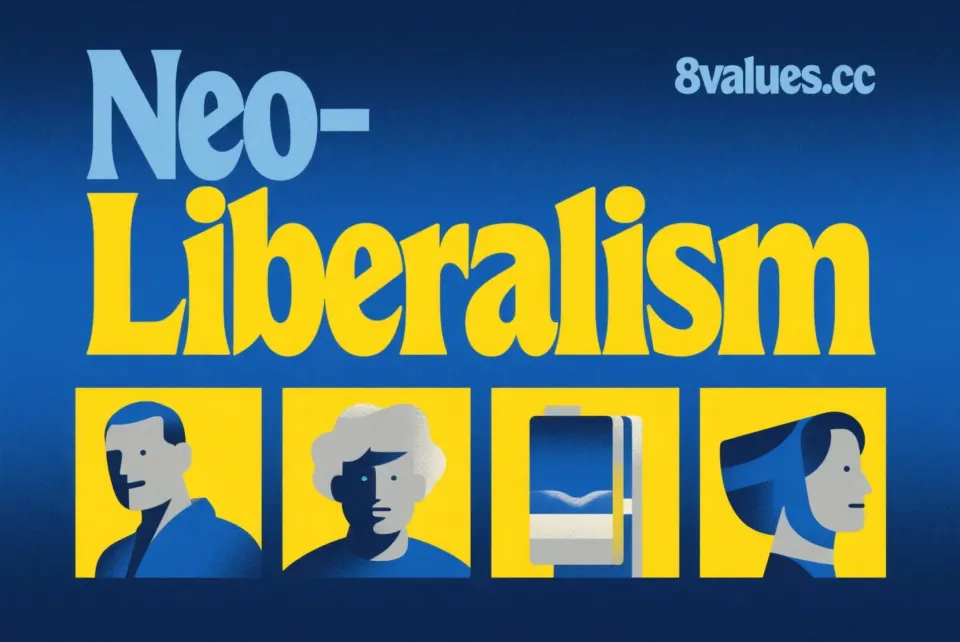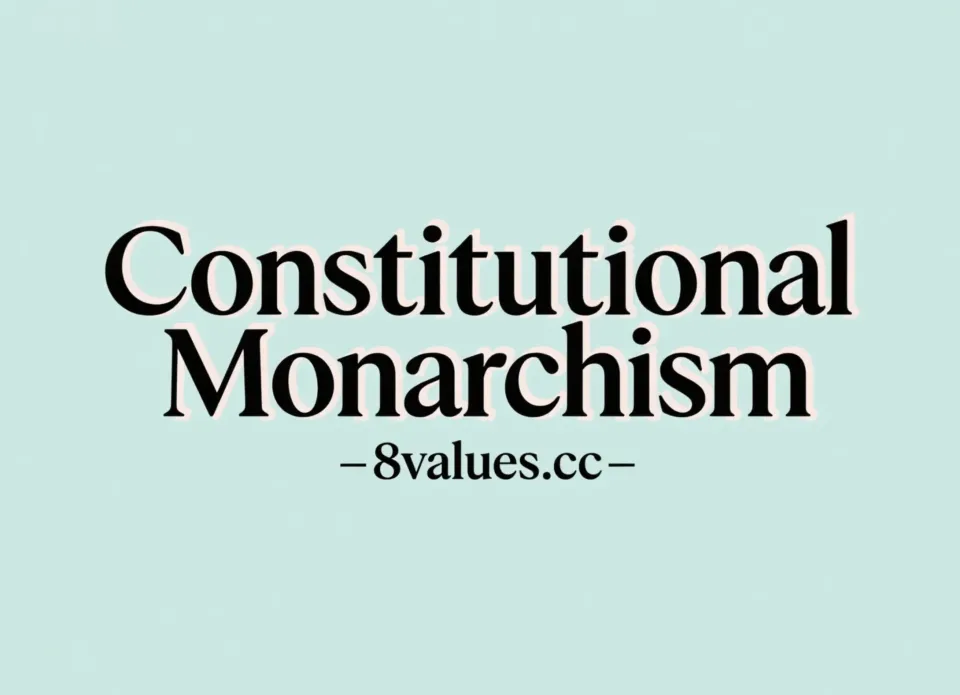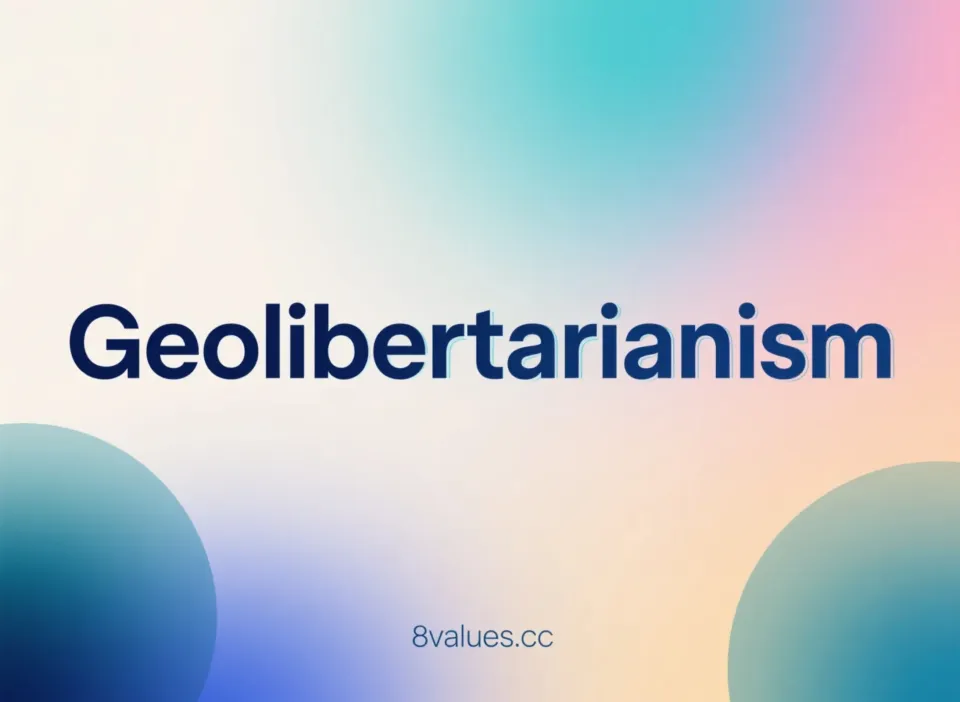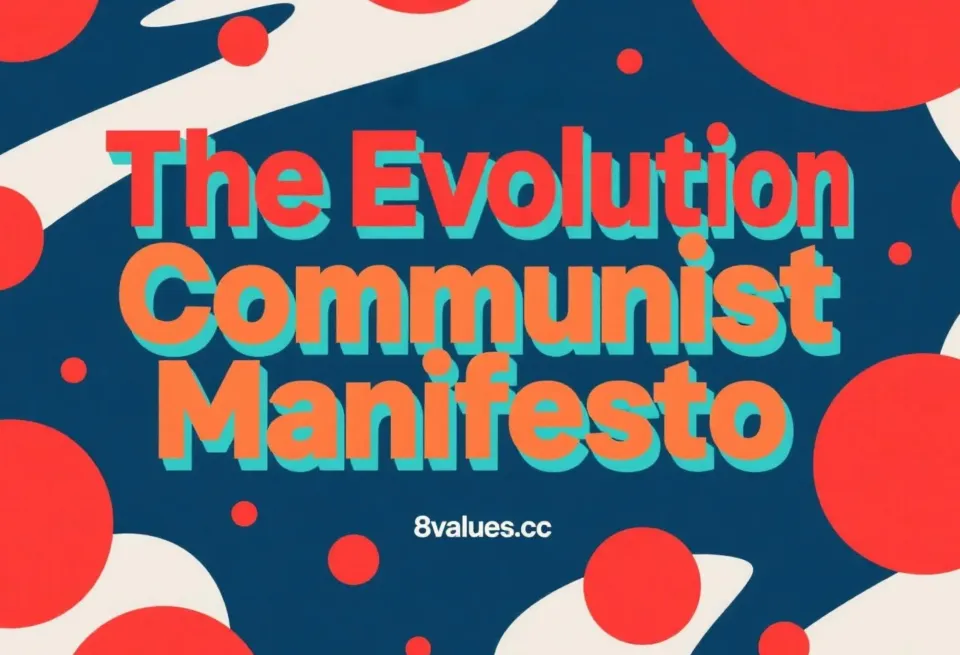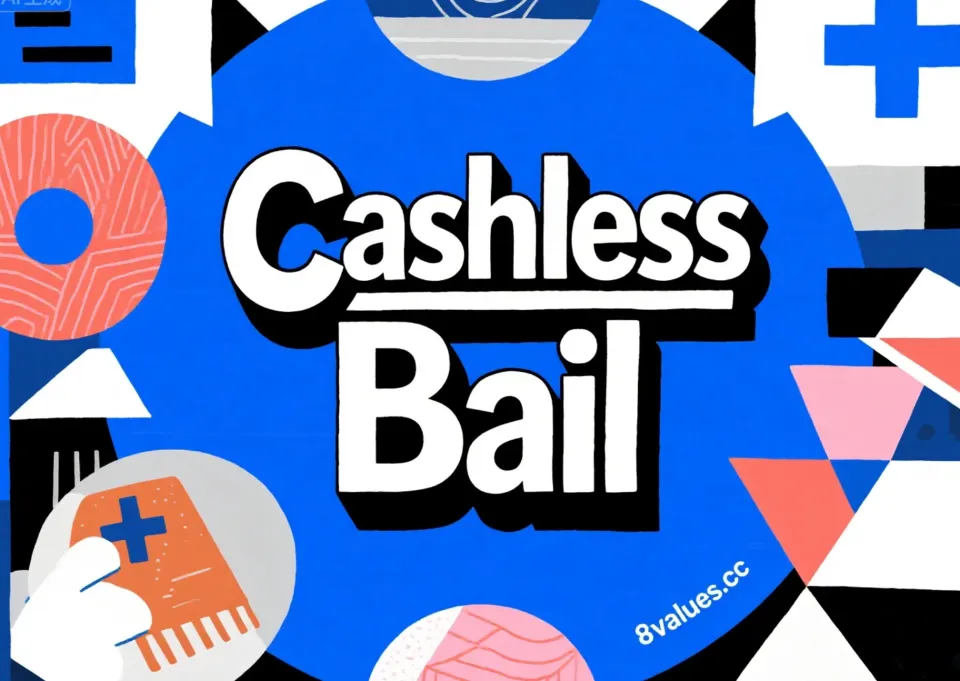Neo-Liberalism | 8values Interpretation of ideological ideology in political tests
Deeply explore the definition, history, core principles, policy practices and their far-reaching impact and controversy on a global scale. This article will fully interpret this political economy theory, help you understand its positioning in contemporary society, and explore its manifestation in ideological assessment tools such as 8values political tests.
Neo-liberalism, as a form of economic liberalism that recovered in the late 20th century, has played an increasingly important role in international economic decision-making since the 1970s and has deeply shaped the globalized world we live in. It is not only an economic theory, but also a philosophical idea that affects politics, society, culture and even personal life, advocating the promotion of economic growth and personal freedom by liberating the market and reducing government intervention. While the term “neoliberalism” is often used as a derogatory term by critics, its advocates and scholars consider it a legitimate term with clear analytical capabilities that is crucial to understanding social transformation in recent decades.
The definition and core concept of neoliberalism
The most basic definition of neoliberalism is that it believes that society should be shaped by free markets and that the economy should be regulated and privatized . This concept emphasizes personal freedom and private property rights and believes that the free market mechanism can allocate resources in the most efficient way, thus bringing human prosperity and happiness. In the 8 values political test , neoliberalism is often seen as an ideology that tends toward the free end of the “economic axis”.
However, neoliberalism is not simply "lazy faith". It advocates a "strong and impartial country" that, while restricts detailed interventions on individual economic activities, must also perform important and active functions. These functions include maintaining legal structures to promote voluntary market cooperation, ensuring market competition, preventing monopolies, providing a stable monetary framework, and rescuing poverty in extreme cases. In other words, neoliberalism advocates that the state actively builds and consolidates policies and infrastructure for the operation of free markets, rather than act completely inaction.
Its core value is competition . Neoliberals believe that competition is a "discovery program" that discovers value and promotes innovation. Through competition, the market can allocate resources to the most efficient producers and encourage people to use their talents and abilities to ultimately benefit everyone. This idea redefines citizens as consumers whose democratic choices are best achieved through purchase and sale.
In terms of morality, neoliberalism believes that people with morality and character are those who can enter relevant markets and operate as qualified players. Individuals are seen as the sole responsible person for the consequences of their own choices and decisions; inequality and serious social injustice are considered morally acceptable, at least to the extent that they are regarded as the consequences of free decision making.
History traces back to: From classical liberalism to neoliberalism
Neoliberalism is not a completely "new" theory, but a "new" interpretation and revival of classical liberal thought.
Classical liberalism emerged in Europe from the 17th to the early 19th century. Its representative figure, Adam Smith, proposed the "natural freedom" system, advocating that the "invisible hand" can automatically regulate the private economy, thus benefiting the entire country and mankind. During this period, the core concept of liberalism was to minimize state intervention and promote "lazy" economic policies.
However, the Great Depression of the 1930s was widely regarded as a failure of economic liberalism. In order to save and renew the damaged liberal ideology, a group of liberal intellectuals organized the famous Colloque Walter Lippmann in Paris in 1938. At this symposium, "neoliberalism" was proposed as a new movement name, aiming to explore the "third path" between "lazy faith" and "socialism". The symposium defined neoliberalism as the ideology of “price mechanisms first, free enterprises, competitive systems and strong and just states.”
After the end of World War II, Keynesianism and welfare state policies dominated the world, emphasizing the positive role of the government in full employment, economic growth and national welfare. Faced with this collectivist trend, a group of scholars led by Friedrich Hayek established the Mont Pèlerin Society in 1947 to further develop neoliberal ideas. They believe that the failure of classical liberalism is due to its conceptual flaws, which need to be diagnosed and corrected through in-depth discussions by like-minded intellectuals.
Neoliberalism began to flourish in the 1970s, which was directly related to the failure of Keynesian policies in the "stagflation" crisis and the collapse of the Bretton Woods system. At this time, the London School represented by Hayek and the monetary school represented by Milton Friedman rose rapidly.
Key figures and theories lay the foundation
The formation and dissemination of neoliberal ideas cannot be separated from the following core figures:
- Friedrich Hayek : Austrian economist, considered the "grandfather" of neoliberalism. His book The Road to Slavery has severely criticized collectivism, emphasizing that the market is the "discovery process" of knowledge and that any central plan is inefficient due to information constraints. He believes that market competition can build an elite structure composed of successful people and replace representative democracy that represents the majority.
- Milton Friedman : an economist at the University of Chicago and a representative of the monetary school. In his works such as Capitalism and Freedom, he advocated that economic freedom is a necessary condition for political freedom, advocated reducing government intervention in the economy, and stabilize the economy by controlling the money supply.
- Ludwig von Mises : Austrian economist whose book Liberalism laid the foundation for the basic theory of neoliberalism and promoted the universality of capitalism and market freedom. He stressed that without a price system, the socialist planned economy could not effectively allocate resources.
- James M. Buchanan : One of the founders of the public choice theory, emphasized the incentive issues in government activities, believed that government officials and special interest groups could abuse their power, and advocated restriction of democratic power through constitutional mechanisms.
The theories of these thinkers laid the foundation for neoliberal policy practice and demonstrated their unique ideological genealogy in 52 ideologies .
Policy Practice and Global Expansion
The idea of neoliberalism was fully implemented in the late 1970s and early 1980s with the rule of Margaret Thatcher in the United Kingdom and Ronald Reagan in the United States. These policy systems are called "Thatcherism" or "Reagan Economics."
The policy pillars of neoliberalism mainly include:
- Privatization : Selling state-owned enterprises to private investors, involving public service departments such as banks, railways, electricity, water supply, education and medical care.
- Deregulation : Reduce government intervention and supervision in the fields of market, finance, labor and the environment to "liberate" market forces.
- Fiscal austerity and tax cuts : drastically cut government spending, especially social welfare and public services, and tax cuts on large corporations and the rich.
- Free trade and globalization : Eliminate trade barriers and promote the free flow of capital, goods and services, such as the North American Free Trade Agreement. This has formed a policy system represented by the "Washington Consensus" globally, and promoted structural reforms to developing countries.
- Monetaryism : Emphasizes maintaining price stability by controlling the money supply, rather than Keynesian fiscal stimulus to achieve full employment.
- Weak union power : Suppress labor rights and collective bargaining to reduce labor costs and enhance corporate competitiveness.
These policies were first conducted on a large scale under the Pinochet military dictatorship in Chile , and then quickly spread to the United Kingdom, the United States, Latin America, East Asia and other regions. In the context of neoliberal globalization, capital can flow freely between different geographical spaces and boundaries, shaping a new global political and economic pattern.
The socio-economic impact of neoliberalism
The implementation of neoliberalism has brought complex and far-reaching impacts, both with the achievements of economic growth and with many social problems:
- Economic growth and efficiency improvement : Neoliberal supporters believe that free markets and reducing government intervention can stimulate economic growth, promote technological innovation, improve production efficiency, and thus improve living standards. Chile was once known as the "Chile Miracle" and achieved long-term rapid growth.
- Intensify social inequality : Critics generally believe that neoliberal policies lead to the transfer of wealth from the bottom to the top, exacerbating inequality in income and wealth distribution. The so-called "trickle-drop effect", that is, the view that the wealth growth of the rich ultimately benefits the poor, is considered to be difficult to achieve in practice.
- Frequent financial crises : Financial liberalization and excessive capital speculation have led to increasingly fragile financial systems, triggering many serious financial crises, such as the Asian financial crisis in 1997 and the global financial crisis in 2008.
- Weakening of the public sector and expansion of private power : The reduction and privatization of governments' public expenditures have led to a decline in the quality of public services, while the power of private enterprises and international monopoly capital has continued to expand and penetrate into all aspects of social life.
- Erosion of the democratic foundation : Neoliberalism emphasizes market logic, which may lead to democratic decision-making being limited by economic interests and weaken citizens' political participation and national sovereignty. Hayek even believed that neoliberalism could be realized under an authoritarian regime.
- Social differentiation and urban governance challenges : At the urban level, neoliberalism has led to problems such as spatial polarization, urban gentrification, and disintegration of community networks, exacerbating the gap between the rich and the poor and uneven resource allocation.
- Environmental Issues : Deregulation may lead to neglect and destruction of the environment, exacerbating climate change and the rate of species extinction.
Criticism and Controversy: Multi-dimensional Review
Since its rise, neoliberalism has faced widespread criticism from different fields and perspectives.
- Questioning the effectiveness of economics : Behavioral economics points out that there are biases in human decision-making and is not completely rational, which challenges the "economic man" model that neoliberalism relies on. Keynesians also refuted neoliberal criticism of fiscal policy, especially during recession.
- Erosion of social ethics : Critics argue that neoliberalism regards competition as the core of human relations, defines citizens as consumers, and markets all values, thus eroding social solidarity, public spirit and human dignity.
- Threat of democracy : High economic inequality is believed to undermine democracy because the concentration of wealth causes political power to tilt towards a few elites. Neoliberalism’s priority protection of economic freedom may also limit democratic citizens’ ability to redistribute wealth.
- Colonialism Criticism : Some scholars believe that neoliberalism has a neocolonial nature. Through international financial institutions and trade agreements, developed countries and multinational corporations implement economic control and exploitation of developing countries, deepening inequality and dependence.
- The rise of populism and nationalism : The economic difficulties and inequality caused by neoliberal policies are considered to be important factors that fuel right-wing populism and nationalism.
- Feminist criticism : Feminists believe that neoliberalism “appropriates” feminism, transforming its ideals into a market-led false elite management system, and neglecting the needs of women who are harmed by neoliberalism.
- Environmental Destruction : Neoliberalism regards the economy and ecosystem as completely separate, neglecting environmental costs, leading to environmental deterioration, aggravated pollution and ecological destruction.
- Mass Incarceration : Some scholars link the phenomenon of mass incarceration of poor people in the United States to the rise of neoliberalism, which believes that it is a policy tool for neoliberalism to deal with social instability in economic marginalized populations.
Future trends and challenges
The 2008 global financial crisis was widely regarded as a sign of the failure of neoliberalism, triggering profound reflection and doubts about this ideology. Nevertheless, neoliberalism has not completely died out. In the absence of a competitive alternative ideology, it still maintains its influence globally, and many countries are still actively promoting free trade agreements.
However, the widening gap between the rich and the poor globally, the spread of populism, the rise of nationalism and protectionism, and climate change, all indicate that “unrestrained neoliberalism cannot provide the best future for most citizens”. This prompts people to think about the development path of the "post-neoliberal era".
Faced with these challenges, the international community needs to strengthen democratization and supervision of international institutions to ensure that they no longer serve as tools to suppress democracy and workers' rights. In terms of economic policy, re-examining the role of the state in the market and exploring new models that can balance efficiency and equity, economic growth and social welfare is the key to getting rid of the limitations of neoliberalism.
For non-Western countries, it is particularly important to develop urban governance and economic development models with their own cultural, historical and social relations characteristics and avoid blindly copying neoliberal discourses in the context of British and American society. Only by deeply understanding the connotation of neoliberalism and its social spatial expressions can we effectively deal with the crises it brings and explore new paths that meet their own development needs.
Understanding various political ideologies such as neoliberalism will help us better understand the complex problems facing the contemporary world. If you are curious about your results in the 8values political test or want to explore more detailed interpretations of 52 ideologies , please visit our 8values Quiz website to use the political spectrum coordinate analysis tool and follow our official blog for more insights.
